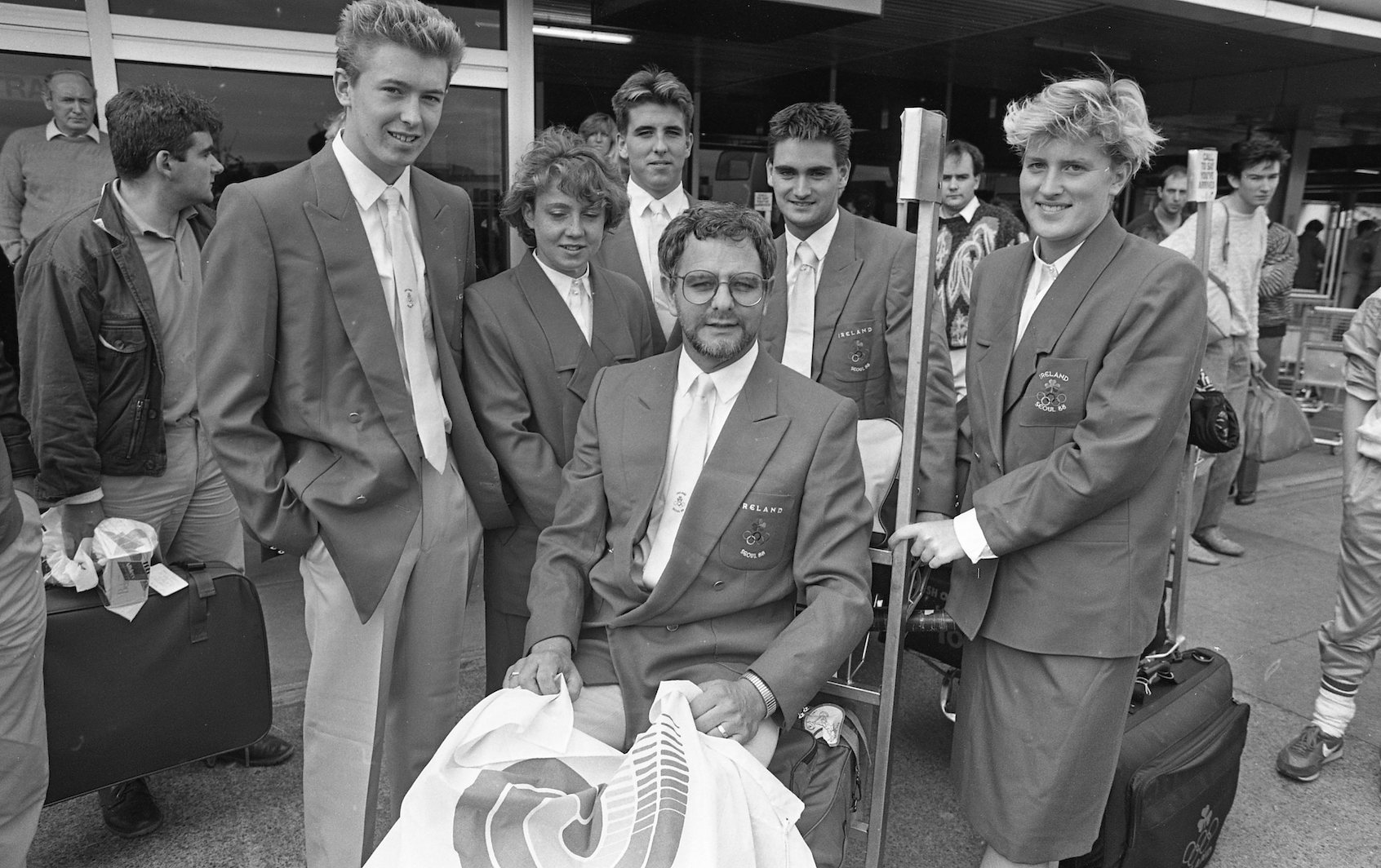The most notorious at-large sex criminal in sports history is at large no more.
George Gibney, head coach of the 1984 and 1988 Irish Olympic swimming teams, who fled to the U.S. more than 30 years ago after evading prosecution in Ireland on dozens of sexual abuse charges, was arrested in Florida on July 1. Gibney now faces extradition to Ireland for prosecution on new charges.
This news was first reported by the Irish Times and other Irish media. It is not clear at this point whether Gibney’s arrest had any of the deportation theatrics associated with ICE detention under the second Trump administration, or was a more typical arrest conducted by federal agents. Gibney has lived for many years in Altamonte Springs, Florida, a suburban community near Orlando.
The swimming news site SwimSwam cited this reporter’s successful 2016-17 Freedom of Information Act lawsuit against the Department of Homeland Security, which brought to daylight several key records from Gibney’s U.S. immigration file. SwimSwam also points out that Gibney’s arrest clearly resulted from the attention generated by the 2020 BBC podcast “Where Is George Gibney?“, produced and narrated by Mark Horgan.
American media, on the other hand, has barely covered the Gibney story at all. In 2016, Fox News correspondent Tamara Holder interviewed me about the FOIA case for her segment “Sports Court.” Later that year, the San Francisco Chronicle published a report focused on federal judge Charles Breyer’s criticism of federal immigration authorities. “Given Gibney’s past,” Breyer said at the time, “more should have been done,” perhaps including Gibney’s deportation.
We need your help to stay independent
Before ruling “mostly” in my favor, as he put it, Breyer said, “I have to assume that if somebody has been charged with the types of offenses that Mr. Gibney has been charged with, the United States, absent other circumstances, would not grant a visa. We’re not a refuge for pedophiles.”
Among the documents revealed in that case was a job offer for Gibney as a swimming coach in the U.S. That may have been engineered by the American Swimming Coaches Association, the trade group that, as Breyer said in his ruling, was suspected of having “greased the wheels for Gibney’s relocation.”
After reaching a settlement with me before the Ninth Circuit Court of Appeals, the government also released redacted documents showing that U.S. immigration authorities had rejected Gibney’s 2010 citizenship application after he concealed information about his arrest and indictment in Ireland, and also that had ICE quashed consideration of whether Gibney’s material lies were grounds for deportation.
At the end of 2017, the outcome of my FOIA case led to an exchange on the floor of Dáil Éireann, the Irish parliament, between Maureen O’Sullivan, the opposition legislator who was leading a campaign for Gibney’s extradition and prosecution, and Simon Coveney, who was then deputy prime minister and foreign minister. There was no further U.S. coverage of the controversy until the BBC podcast appeared in 2020, and to all appearances Gibney continued to live peacefully in Florida retirement.
Start your day with essential news from Salon.
Sign up for our free morning newsletter, Crash Course.
In February 2021, I published an article on the Gibney case in the Colorado Springs Gazette, effectively the hometown newspaper of both USA Swimming and the U.S. Olympic & Paralympic Committee. That remains the only report of any significant length on this story in any U.S. publication. (An edited version is available on my website.)
A 1998 Irish government report on abuse in youth swimming cited detailed and explicit testimony on Gibney’s systematic pattern of abuse, and found that his accusers had been “vindicated” by overwhelming evidence. But that report came three years after Gibney had fled to the U.S., following the Irish Supreme Court’s ruling that too much time had elapsed since the earliest allegations and he could not receive a fair trial.
The now-defunct alternative Irish news site Broadsheet was the only significant outlet on either side of the Atlantic to report that then-Supreme Court Justice Susan Denham did not recuse herself from the Gibney ruling even though her brother, Patrick Gageby, was acting as Gibney’s lawyer.
The Gibney story takes up two chapters in my 2024 book “Underwater: The Greed-Soaked Tale of Sexual Abuse in USA Swimming and Around the Globe,” portions of which were previously published on Salon.
Read more
about this topic


